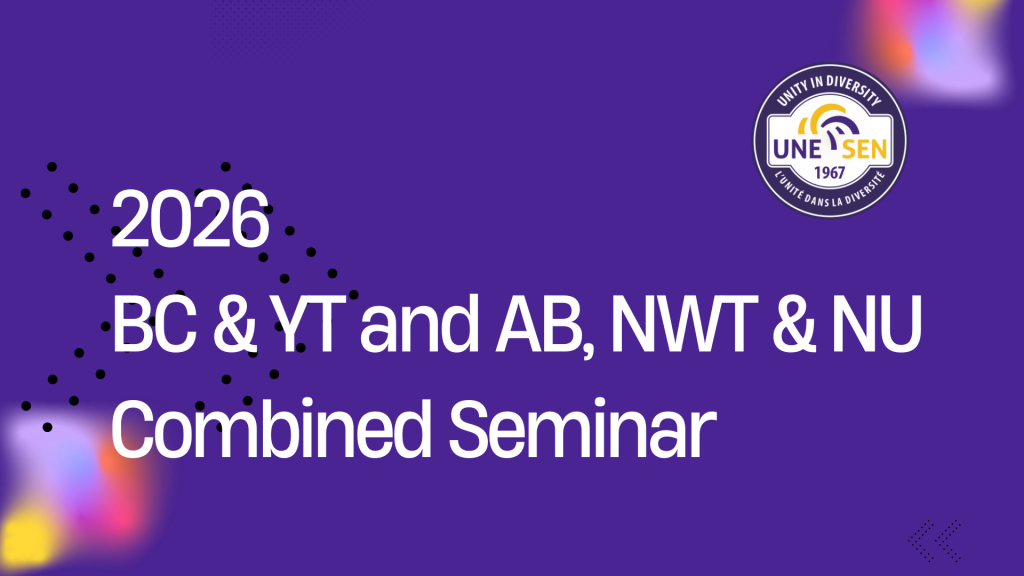
Today has started Regional Seminar – BC-YT and AB-NWT-NU, please click below to access the agenda and more information:
If you have any questions regarding the event organization, please contact us at events@une-sen.org

Today has started Regional Seminar – BC-YT and AB-NWT-NU, please click below to access the agenda and more information:
If you have any questions regarding the event organization, please contact us at events@une-sen.org
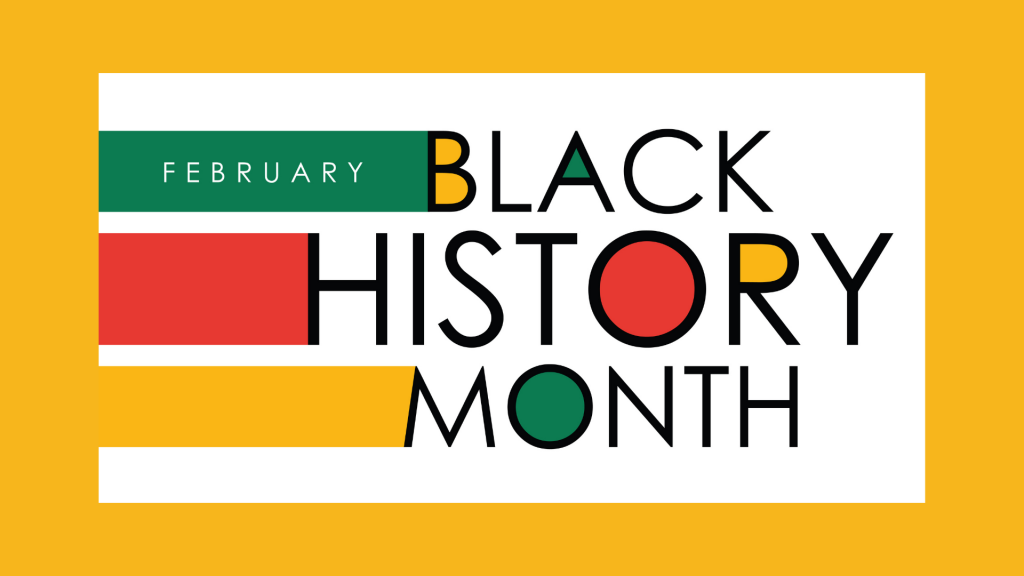
This Black History Month, PSAC honours the leadership, resilience and organizing power of Black workers who have shaped Canada’s labour movement and continue to lead the fight for justice today. This year, PSAC’s theme is “Black Voices: Bold Futures – From Legacy to Leadership.” This is a call to recognize the legacy of resistance that has shaped our unions and to center the voices that are charting a bold path forward.
Historically, many Black workers have fought for fair workplaces and spoken out against racism and discrimination, including during strikes and other human rights fights, earning an important seat at decision-making tables.
Activists and leaders like Stanley Grizzle and Bromley Armstrong pushed unions and governments to stop racist practices and helped shape what unions bargain for and what they fight for. From the days of railway porters to today, their work helped and continues to achieve a strong base for fair work and anti-racism policies at work.
The United Nations has launched a new International Decade for People of African Descent (2025–2034), focused on supporting Black communities, breaking down systemic barriers and lifting Black voices in Canada and around the world. Canada has pledged to continue this work until 2028 and is also taking part in this second decade.
Black members lead allyship and equity work
Black members are showing what allyship looks like in practice, including at PSAC’s 2025 National Women’s Conference where Black women delegates championed and supported key resolutions to expand domestic violence training, improve access to health care for Indigenous women. Members at the conference unanimously voted in favour of a resolution to formally recognize the contributions of Black women workers.
Together, with other equity groups, Black members are shaping union policy and bargaining priorities in ways that offer a model for the wider labour movement on how to live up to equity commitments through both words and concrete action.
At the same time, these past and current achievements don’t erase what Black workers are still facing in Canada’s public service. Black workers continue to deal with lower pay, less access to training, mentorship and chances to grow in their careers, and they deal with employers who ignore or fail to stop anti-Black racism at work.
We cannot ignore how this year’s federal budget cuts are hurting equity groups, including Black and other racialized workers who are already underrepresented in the federal public service.
Taking action on anti-Black racism
This is precisely why PSAC’s ongoing work to center Black voices in our union is so important. We are building on years of organizing, creating space for members to come together, organize, and speak up about the issues that affect them. PSAC’s Black caucus is member-led groups where Black members share experiences, build leadership, and organize around issues like anti-Black racism at work and within the union.
Our racial justice work also goes beyond our internal union work. We have filed a human rights complaint with the Canadian Human Rights Commission on behalf of all Black federal public service workers, and several other grievances to challenge anti-Black racism. We are pushing employers to fix unfair practices, and are demanding equal access to training, mentoring and career growth for Black workers.
We are calling on the federal government to settle the human rights complaint to make Black federal workers whole, implement the recommendations of the Taskforce on the Employment Equity Act Review including making Black workers a separate employment equity group, and work with unions and equity groups before making any policy changes that put workers and their communities at risk. The future of Canada’s public service depends on equity, inclusion, and the leadership of those who have long been on the front lines of the fight for justice.
This is how you can help:
Source: PSAC

From coast to coast to coast, PSAC members make a difference every day — because public services are only as strong as the people behind them.
Mackenzie Hulzebosch helps keep Canada safe
As a parole officer in Hamilton, Mackenzie Hulzebosch has a lot on her plate when she gets up and goes to work. Mackenzie visits offenders at their houses, jobsites, and her office to help them safely reintegrate back into public life.
“We are the frontline workers,” Hulzebosch said.We’re the people keeping you safe. Making sure that the public service is supported ensures that we can continue to help Canada in the best and most efficient way.”Hulzebosch says parole officers work with high-risk offenders balancing a heavy, complex caseload. She says her top concerns at work are staffing levels and training.
But she feels a sense of pride whenever she helps her clients transition to the next stage of their life after parole.
“When they leave with a job, with a house, with better connections to their family and being a positive member of society, I am so proud of that because I see the work that they put into it,” said Hulzebosch.
Helping unemployed Canadians get the benefits they deserve
For Charito Humphreys, it’s crucial to support unemployed workers in Canada. Humphreys helps provide them with insurance benefits, through her work at an employment insurance call center.
“Most people will use employment insurance at one point or another,” said Humphreys. “These are services that Canadians rely on in almost any aspect of their life.”
Humphreys’ call center, based in Regina, Saskatchewan, offers insurance benefits for illness, maternity, compassionate care and more. Though she does not directly provide this support, she educates the officers that will, as a business expertise advisor.
“For me, the best part about my job is when I have officers who come back to me and say: ‘thank you for all that you’ve done to support me in my job,’” said Humphreys. “What you’ve taught me has helped me become a better officer. It’s helped me provide a better level of service. To me, that means I’ve done my job well in supporting these officers in being the best that they can be in order to serve Canadians.”
An ally advocating for First Nations teachers
Caila Pischke loves her job as a schoolteacher. The school where she teaches hosts 110 students, all of which are members of the Denesuline First Nations.
“We are one of the only western schools in Canada that is on a federal reserve,” said Pischke. “I work at Cold Lake First Nations, in Alberta.”
Though Pischke herself does not identify as a member of the First Nations, much of the teaching at her school is done in the Denesuline language. However, Pischke and her fellow teachers had not been receiving an indigenous language allowance. As president of her local teachers’ union, Pischke helped bargain for it.
“We ended up getting the indigenous languages allowance for the teachers at our school,” said Pischke.
“It was really important to be able to recognize the indigenous languages and be able to see them as national languages in Canada, and not just English and French.”
Peter Butler safeguards Canada’s waterways
As a fishery officer that calls the winding rivers of central Newfoundland home, Peter Butler is proud to protect Canada’s waterways. Butler patrols and regulates surrounding fisheries and educates local communities on how they can conserve Canada’s aquatic resources.
“I work to safeguard and protect Canada’s freshwater and marine ecosystems,” said Butler.
“Our waters are very vital to our local economy; they’re a source of income for a lot of people living here and important to the well-being of folks living in the community and beyond.”
This work is an important driver of the economy in the province: the marine sector accounted for approximately 33 per cent of Newfoundland and Labrador’s GDP in 2022. He also helps support other agencies with search and rescue operations and other emergencies such as wildfires and floods.
Butler wants to ensure that the important work he does in the public service is protected.
“We’re there to serve Canadians,” said Butler. “Our job is to keep these waters protected for the environment and our children and for the generations to come.”
Source: PSAC

Every December 10, Human Rights Day commemorates the adoption of the Universal Declaration of Human Rights (UDHR).
In 2025, the United Nations highlights the theme “Human Rights: Our Everyday Essentials.” This theme highlights a simple truth: human rights are not theoretical. They are what make it possible to live and work with dignity, safety, and fairness — every day.
For the labour movement, human rights take very concrete forms:
• the right to work in a safe environment, free from harassment and violence;
• the right to employment equity, particularly for persons with disabilities, women, racialized workers, and members of marginalized groups;
• the right to decent work, fair wages, and working conditions that respect human dignity.
For UNE, defending human rights means defending workers in their day-to-day reality — in workplaces, staffing processes, and access to real opportunities.
Human rights are also fundamental freedoms:
• the freedom to go for a run without fear for your safety;
• the opportunity for a person with a disability to access employment without systemic barriers or discrimination;
• the right for every individual to be recognized, respected, and protected, regardless of identity or circumstance.
These realities extend beyond the private sphere. They are reflected in employment policies, management practices, workplace accessibility, and organizational culture.
When rights are weakened, workers are often the first affected through discrimination, exclusion, and insecurity. When rights are protected, workplaces become fairer, more inclusive, and more humane.
Governments have the legal responsibility to respect human rights, but their practical application also depends on collective vigilance. Unions play a central role in ensuring that these rights are not merely theoretical, but real and enforceable in working life.
On Human Rights Day, UNE reaffirms that human rights are inseparable from workers’ rights. They form the foundation of decent, safe, and equitable work — now and in the future.
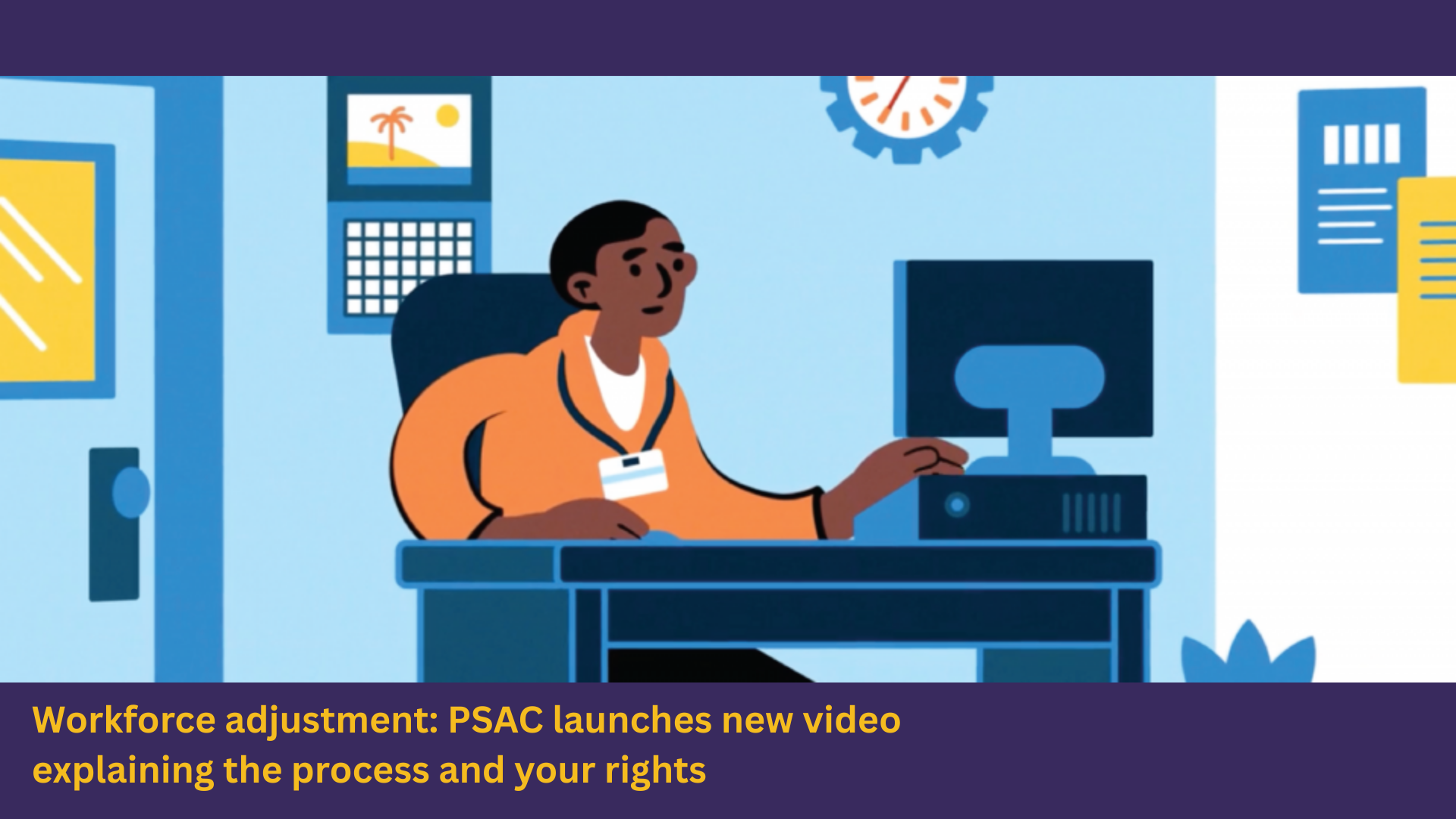
Whether you’ve already received an affected notice, are supporting a friend or coworker, or just want to be ready for what’s coming, you don’t have to navigate job cuts alone. Workforce adjustment — known as employment transition for CFIA workers — can be confusing, with multiples paths and choices to consider. PSAC is here to guide you through every step of the way.
Our new video walks you through the process, explaining your options and the support available to you. Whether you want to stay in the public service or explore new opportunities, we highlight the paths available and protections in place to help you make informed decisions about your next steps.
Watch the video now and take the first step in navigating this process with the information you need.
You can also visit our resources page for more information, including a members’ guide, frequently asked questions, alternation platform, and more.
Source: PSAC
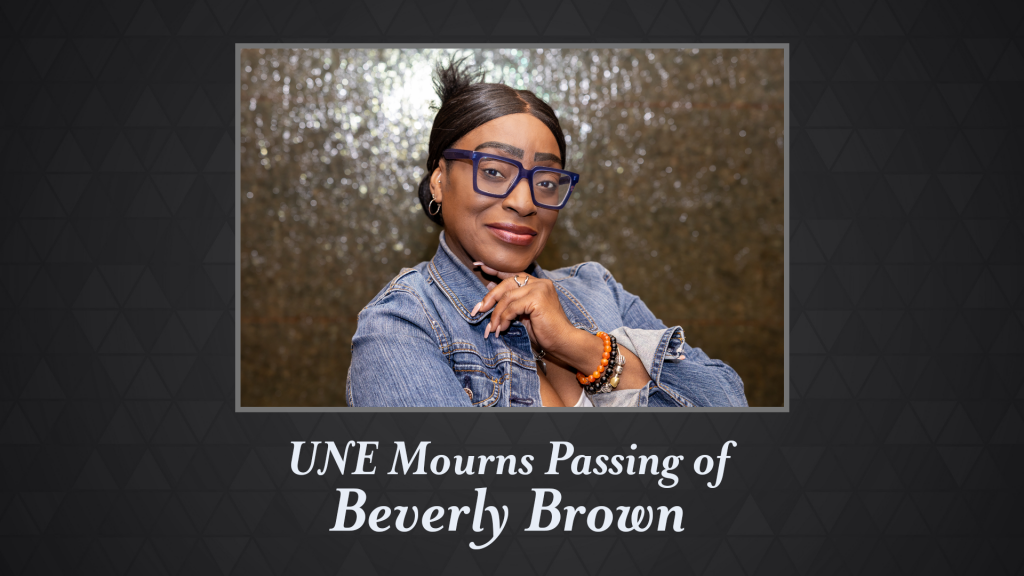
The Union of National Employees is deeply saddened to share the passing of our powerful and beloved sister, Beverly Denaise Brown. Her absence has been felt profoundly across the UNE and PSAC families.
Bev was a tireless leader who dedicated herself wholeheartedly to advocating for workers. She was a long-serving and influential voice within the PSAC-NCR Racialized Members Action Committee and held several positions within the PSAC-NCR Council. Within UNE, she served with distinction as President of Local 70181, Assistant Regional Vice-President from 2017 to 2022, and Regional Vice-President in 2025. She was also a key leader during the 2023 PSAC strike, where her commitment, strength, and clarity of purpose inspired many.
Bev loved being part of her union. She believed deeply in union principles and championed equity long before it became common practice, helping to advance Treasury Board’s Embracing Change equity initiatives more than 25 years ago. Her passion for justice extended far beyond the labour movement. Bev was a dedicated volunteer in her community and gave her time generously to events like Bluesfest and Jazzfest—always offering her energy, kindness, and unwavering sense of service.
She will be dearly missed and mourned by many. We are forever grateful for her leadership, her contributions, and the lasting impact she made on our union and the broader community.
Our hearts are with all who knew and loved her.
You can find Beverly’s obituary and digital guestbook here:
https://beechwoodottawa.ca/en/services/beverly-denaise-brown
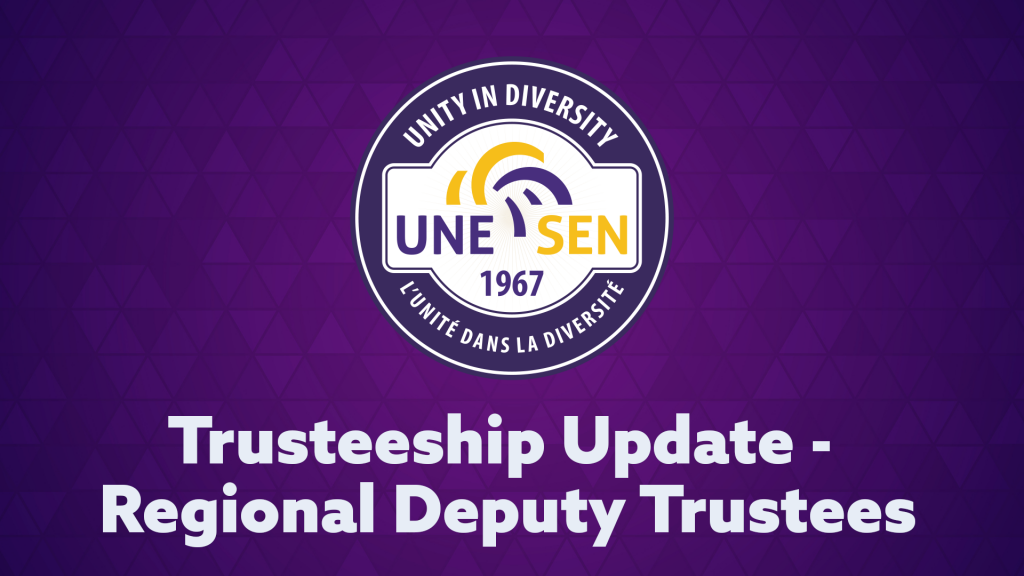
The Union of National Employees (UNE) was placed under trusteeship by the Public Service Alliance of Canada (PSAC) National Board of Directors on October 24, 2025 in accordance with the PSAC Constitution and Regulations.
The Board has appointed PSAC National Executive Vice-President, Alex Silas as Trustee, and Dominic Lavoie as Administrator to manage UNE’s day-to-day operations. Together, they are assessing the current situation and will determine the appropriate steps to move forward.
Impact on UNE Members
Support and service to members will be a high priority, and UNE staff and Local officers are available to provide assistance and representation.
During the trusteeship period, no national and regional elected component officers may hold office or may represent themselves as UNE officers. Local leadership remains in place and continues its work on behalf of the membership.
Regional Deputy Trustees have been appointed by the Trustee to support the Trustee and Administrator in rebuilding the Component and ensuring continuity of service and accountability to UNE members. Deputy Trustees are not a replacement for the UNE National Executive, nor are they a decision-making body.
Deputy Trustees are responsible for supporting Locals in their ongoing work, including participation in LMCCs, conducting general meetings, and managing grievances and staffing complaints.
Gail Budgell — Atlantic
Éric Drouin — Quebec
Michelle Woods — Ontario
Cindy D’Alessio — NCR – TB (Ottawa TB, Gatineau TB, Outside Canada)
Jean-Michel Lavergne — NCR – Separate Employers
Gloria Pfeifer — Saskatchewan / Manitoba
Geoff Ryan — Alberta / NWT / Nunavut
Jonathan Jeet — BC / Yukon
On an as-needed basis, assistant deputy trustees may also be appointed to assist the work of the deputy trustee.
The roles and responsibilities of UNE Locals and Local officers remain unchanged. Members should continue to contact their Local as the first point of contact.
Questions regarding component business should be directed to UNE staff or the Deputy Trustees.
Questions related to the trusteeship should be directed to Alex Silas, Trustee.
In solidarity,
Alex Silas
UNE Trustee
PSAC NEVP
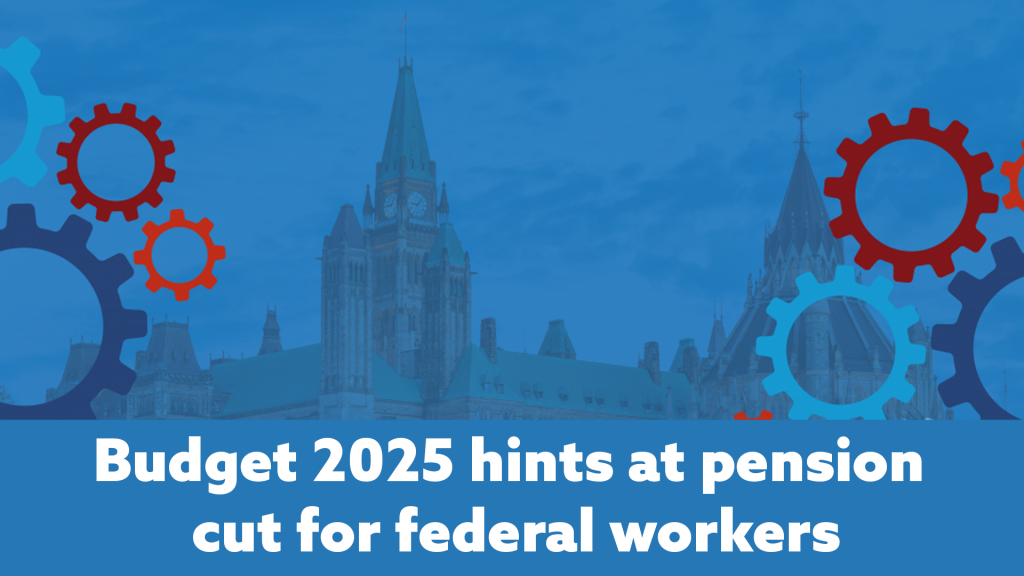
PSAC is concerned the federal government may be preparing to claw back the hard-earned retirement benefits federal public service workers rely on.
Under the “Equitable Public Sector Retirement Benefits” section of the 2025 budget, the government suggests that federal public service workers are “overcontributing” to their federal pension plans and the Canada or Quebec Pension Plans (CPP/QPP). The government aims to correct the issue, promising this will save money both for the government and federal workers.
But this language hints that they plan to reduce pension plan benefits for workers to compensate for recent changes to CPP and QPP. Any proposal that reduces the value of members’ pensions – while framing it as a cost saving for workers – is unacceptable.
The federal government has already betrayed the trust of workers who contribute to the Public Service Pension Plan. Last year, the Liberal government raided $1.9 billion from pension plan, transferring the funds into the government’s own coffers. That decision directly undermined the retirement security of federal public service workers and set a dangerous precedent for treating the pension plan as a government piggy bank.
Combined with massive job cuts and sweeping changes to federal labour legislation included in this budget, the pension change is yet another red flag about how this government intends to treat its workers. PSAC will fight any attempt to undermine workers’ rights — including any move that threatens the financial security of our members in retirement.
Pensions are a core part of our members’ compensation – paid for and earned over a lifetime of service. Any change to pension benefits must be transparent, and should be brought to the unions at the bargaining table – not slipped into the budget as an accounting exercise.
Prime Minister Carney’s government still has an opportunity to show leadership by protecting and strengthening the pensions workers depend on – not weakening them.
PSAC is seeking immediate clarification from the federal government on the intent and impact of the pension language in Budget 2025. We will update members as soon as more information becomes available.
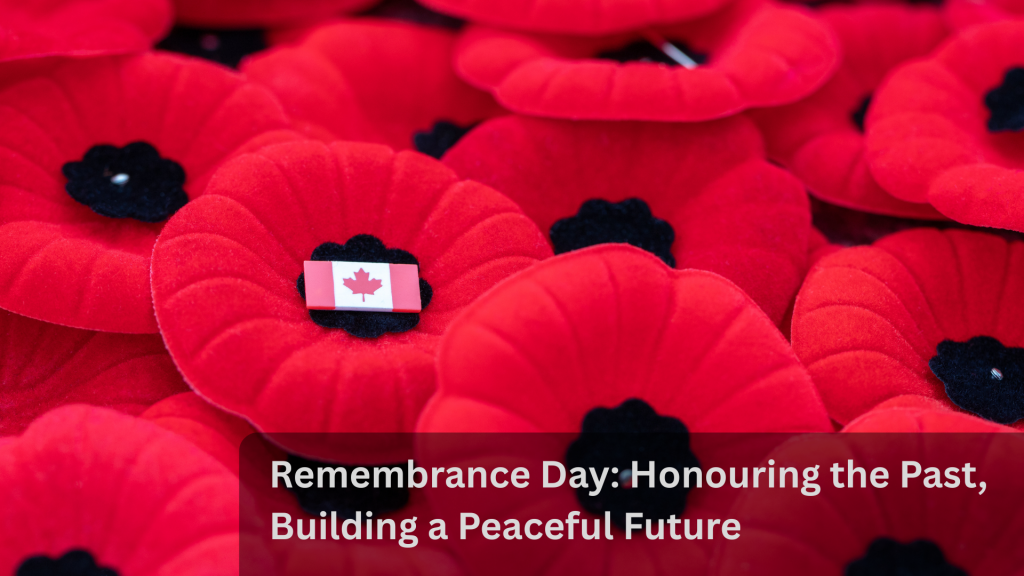
On November 11, Canadians gather in silence, in ceremony, and in solidarity. It is a day to remember the sacrifices made by those who served in times of war and conflict, and to reflect on the values that guide us toward a more peaceful and just society.
As a union, we believe that peace is not passive—it is built through action, advocacy, and unity. The ceremonies held across the country, including the tribute at the Tomb of the Unknown Soldier in Ottawa, remind us of the importance of collective memory and the responsibility we share to uphold the dignity of all people.
Remembrance Day is not only about honouring the fallen—it is also about supporting the living. Many veterans continue to serve our communities, and many face challenges in their transition to civilian life. Solidarity with veterans means recognizing their ongoing contributions and ensuring they have access to the support they need.
Let us honour their courage by advocating for peace, justice, and dignity in our workplaces and communities. Solidarity is our strength, and remembrance is our responsibility.
Resources:
Learn more about Remembrance Day through storytelling
Useful links to support veterans
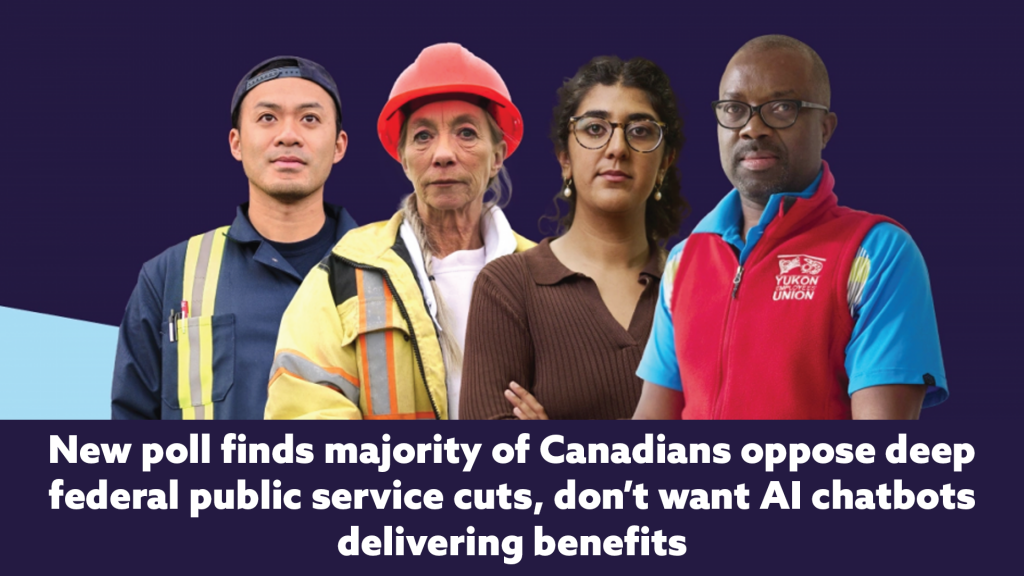
As the Carney government moves ahead with plans to slash potentially tens of thousands of federal public service jobs, new polling by the Public Service Alliance of Canada shows that people in Canada are concerned about the impact of cuts on already strained public services and want to talk to humans — not chatbots — when accessing federal benefits.
Conducted by Crestview Strategy in September, the national survey of 2,000 adults reveals that a clear majority of respondents (51%) oppose widespread layoffs of tens of thousands of federal public service workers. When asked about the government’s planned 15% cuts to most federal departments, respondents were far more likely to express concern (45%) than optimism (19%) about the impact on services and jobs. Instead, most respondents (60%) want the government to prioritize addressing the cost of living.
“People don’t want reckless cuts to the services they rely on — they want a government focused on making life more affordable,” said PSAC National President Sharon DeSousa. “This polling confirms what we’ve been hearing for months: people see the strain on public services every day, and they know cuts will only make life harder for everyone.”
When asked why they were concerned about the impact of government’s spending cuts, respondents listed reduced access to public services and longer wait times (33%), potential job losses and increased unemployment (30%), and concerns about the quality and efficiency of public services (16%) as their top three concerns. A majority also agreed that departments delivering essential frontline services — such as public health (66%), food inspection (61%), passports and benefits (61%), environmental protections (51%), tax administration (55%) and national parks (50%)— should be protected from cuts.
These attitudes reflect a broader sense that federal public services are not bloated, but rather understaffed and strained, an assessment with which a majority of respondents agreed.
Key findings:
“The takeaway here is clear: the vast majority of people trust and support public service workers,” said DeSousa. “They see the value of what our members do every day, and they don’t want the government to make services worse by cutting corners or public service jobs.”
The study’s findings are based on an online survey with a sample of 2,000 Canadian adults. A combination of quotas and weights were applied to ensure a sample that is representative of the population based on census data for age, region, and gender. The survey was in the field from September 14–18, 2025. A comparable probability sample has a margin of error of ±2.2% at a 95% confidence level.